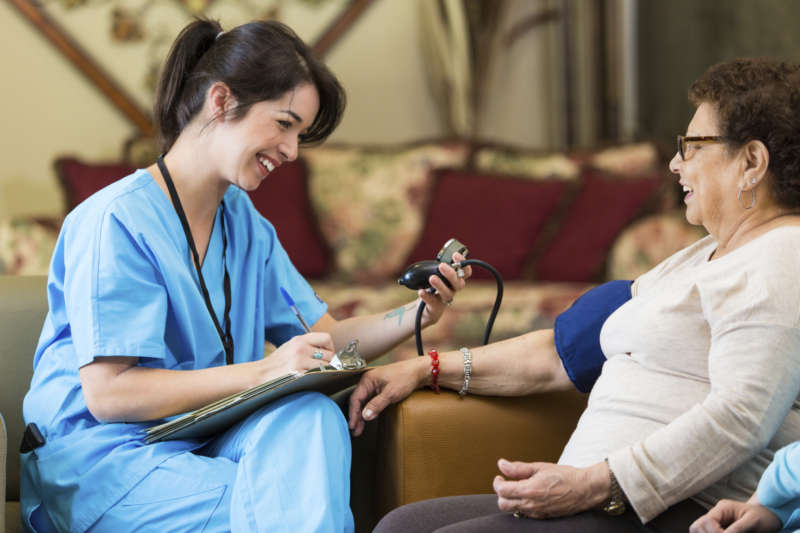Everything You Should Know About Antibiotics at Home for Common Illnesses
 0
0
Posted: Thu April 10 12:34 AM PDT
Business: My Business Name
Antibiotics have become an essential part of modern healthcare, playing a crucial role in treating bacterial infections. However, understanding their correct usage at home is vital to ensuring effectiveness and preventing misuse. This article will cover everything you need to know about antibiotics, from their purpose and types to how to use them for common illnesses at home.
What Are Antibiotics and How Do They Work?
Antibiotics at home Dubai are powerful medications used to treat bacterial infections by either killing bacteria or inhibiting their growth. These medications target the specific structures or functions of bacteria, helping to eliminate the infection from the body. It is important to note that antibiotics are effective only against bacterial infections, not viral infections like the common cold or flu.

Antibiotics are often prescribed when a bacterial infection is diagnosed or strongly suspected. They can be taken orally, applied topically, or administered via injection, depending on the type of infection and the antibiotic's intended purpose.
Common Types of Antibiotics Used at Home
There are various antibiotics available for treating different types of bacterial infections. Below are some of the most commonly used antibiotics in home settings:
Penicillin
Penicillin is one of the oldest and most widely used antibiotics. It is effective against a range of bacterial infections, including throat infections, ear infections, and skin infections. Penicillin is usually well-tolerated and taken orally in the form of tablets or liquids.
Amoxicillin
Amoxicillin is a more modern form of penicillin and is commonly prescribed for ear infections, respiratory infections, and urinary tract infections. It is available in both oral and liquid forms and is often prescribed for children due to its ease of use.
Azithromycin
Azithromycin, often referred to as a "Z-Pak," is a broad-spectrum antibiotic used to treat various infections, including respiratory infections, skin infections, and sexually transmitted diseases. It is often favored because of its relatively short treatment course.
Ciprofloxacin
Ciprofloxacin belongs to a class of antibiotics known as fluoroquinolones and is used to treat a range of infections, including urinary tract infections, skin infections, and certain types of pneumonia. It is available in both oral and intravenous forms.
How to Properly Use Antibiotics at Home
Proper usage of antibiotics is crucial to ensure their effectiveness and to prevent the development of antibiotic-resistant bacteria. Here are some key tips for using antibiotics at home:
Follow the Prescribed Dosage
When taking antibiotics, it is essential to follow the prescribed dosage exactly as directed by a healthcare provider. Skipping doses or stopping the medication prematurely can lead to the infection not being fully treated, which can result in a recurrence or more severe illness.
Complete the Full Course
Even if you start feeling better before finishing the antibiotic course, it is important to complete the entire prescribed duration. This ensures that all the bacteria are eliminated, and the infection does not return. Stopping antibiotics too soon may allow some bacteria to survive and become resistant to the medication.
Do Not Share Antibiotics
Antibiotics should never be shared with others, even if they have similar symptoms. Every infection is different, and the antibiotics that work for one person may not be effective for another. Additionally, sharing antibiotics can contribute to the development of antibiotic resistance.
Store Antibiotics Correctly
Proper storage of antibiotics is essential to maintain their effectiveness. Most antibiotics should be stored at room temperature, away from moisture, heat, and sunlight. Liquid antibiotics may need to be refrigerated, so always check the storage instructions on the label.
Recognizing When to Use Antibiotics for Common Illnesses
While antibiotics are powerful tools, they should only be used for bacterial infections. It is important to recognize when an illness might require antibiotics and when it might resolve on its own without the need for medication.
Respiratory Infections
Respiratory infections, such as bacterial pneumonia or strep throat, may require antibiotics for effective treatment. If you experience symptoms like a sore throat with fever or persistent cough with thick yellow or green mucus, antibiotics may be necessary.
Urinary Tract Infections (UTIs)
UTIs are common infections that often require antibiotic treatment. Symptoms of a UTI include frequent and painful urination, cloudy or strong-smelling urine, and lower abdominal pain. If you experience these symptoms, it is essential to seek medical attention, as untreated UTIs can lead to more serious complications.
Skin Infections
Bacterial skin infections, such as cellulitis or impetigo, may require antibiotics. These infections typically cause redness, swelling, and pain in the affected area. If left untreated, they can spread and lead to more severe health problems.
Ear Infections
Ear infections, particularly in children, are often caused by bacteria and may require antibiotics. Symptoms include ear pain, fever, and difficulty hearing. It is important to consult with a healthcare provider to determine if antibiotics are needed, as some ear infections can resolve without medication.
The use of Antibiotics
While antibiotics can be life-saving when used correctly, their misuse can lead to significant health issues. Overuse or inappropriate use of antibiotics contributes to the growing problem of antibiotic resistance, making it more difficult to treat infections in the future. It is essential to only use antibiotics when necessary and as prescribed by a healthcare provider.

Additionally, overuse of antibiotics can disrupt the balance of bacteria in the body, leading to other health problems, such as yeast infections or gastrointestinal disturbances.
Conclusion
Antibiotics at home in Dubai are essential tools in managing bacterial infections, but their proper use at home is crucial to maintaining their effectiveness. By following the prescribed dosage, completing the full course, and using antibiotics only when necessary, you can help prevent antibiotic resistance and ensure your health is properly managed. Always consult with a healthcare provider if you are unsure whether antibiotics are needed for a particular illness, as they can provide the best guidance for your situation.
Comments
Please login above to comment.
